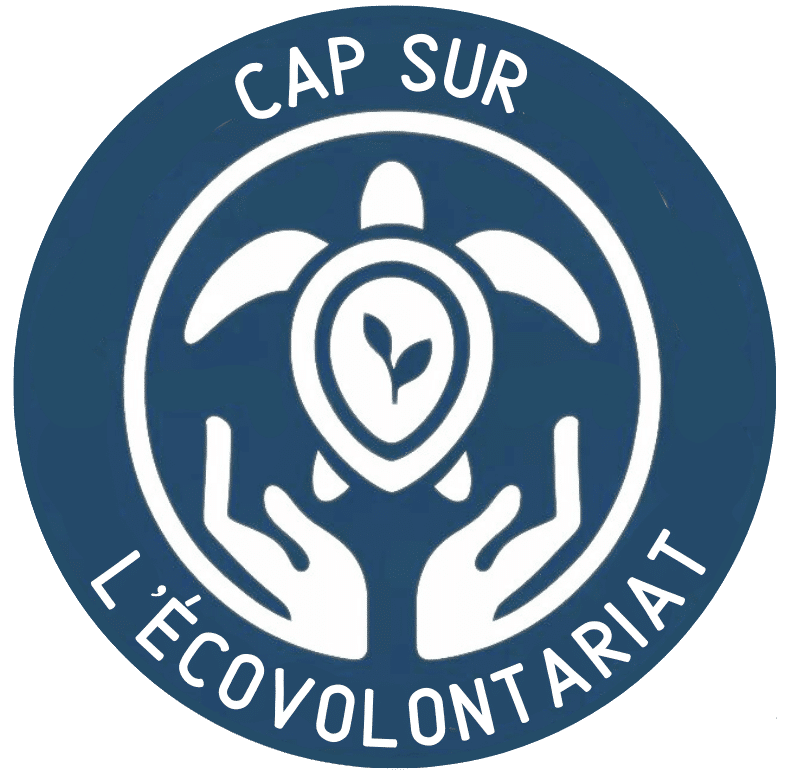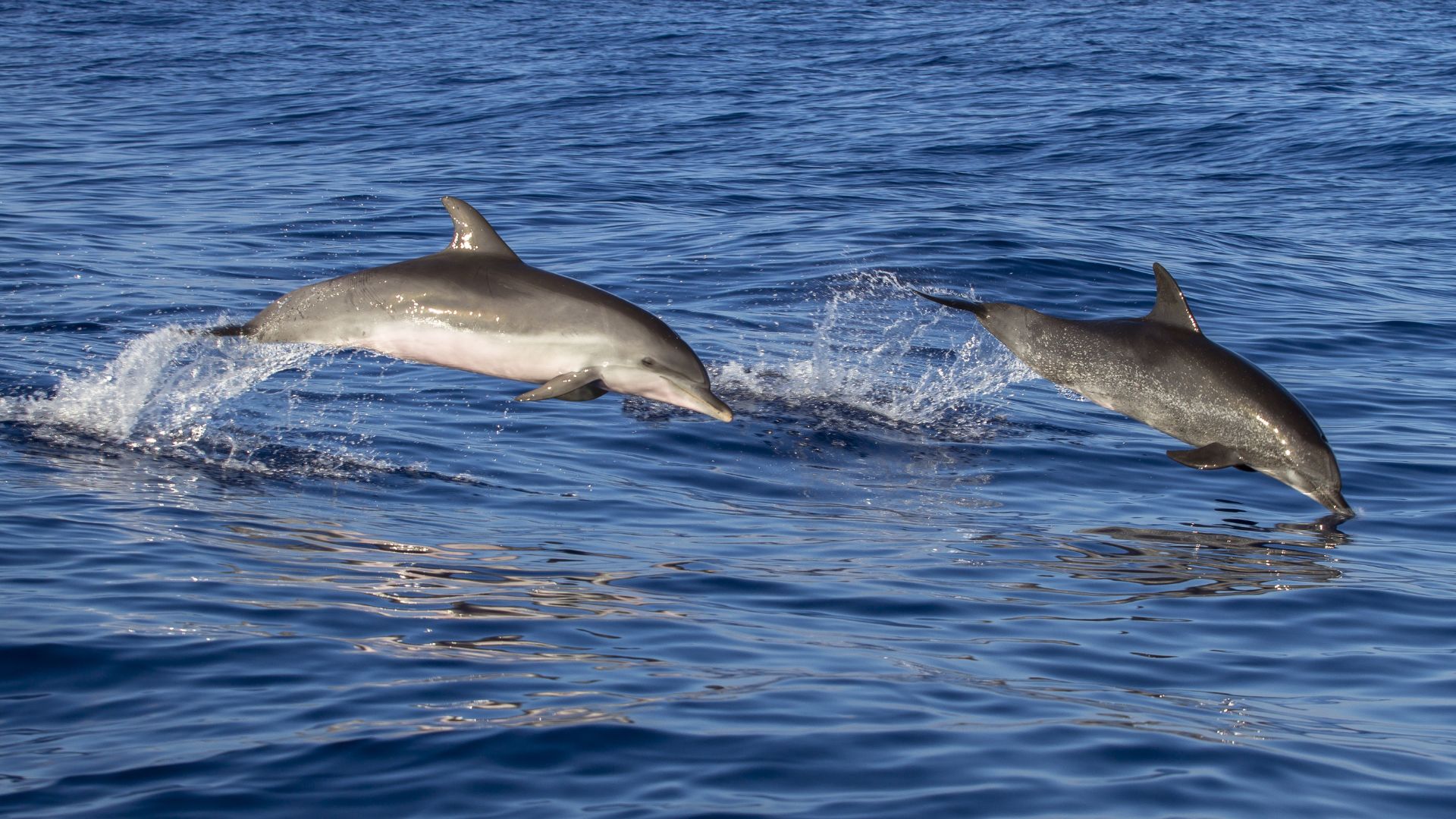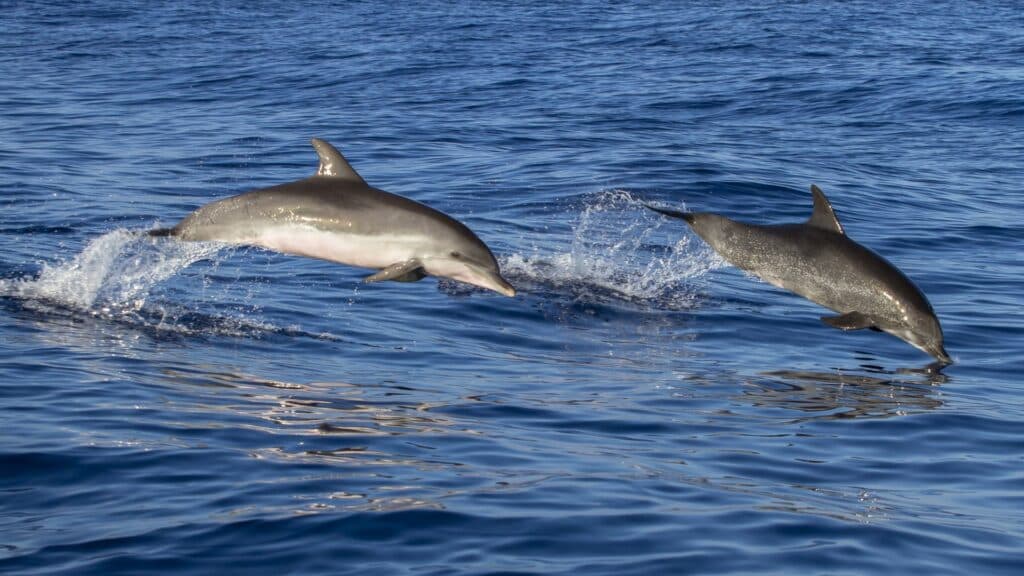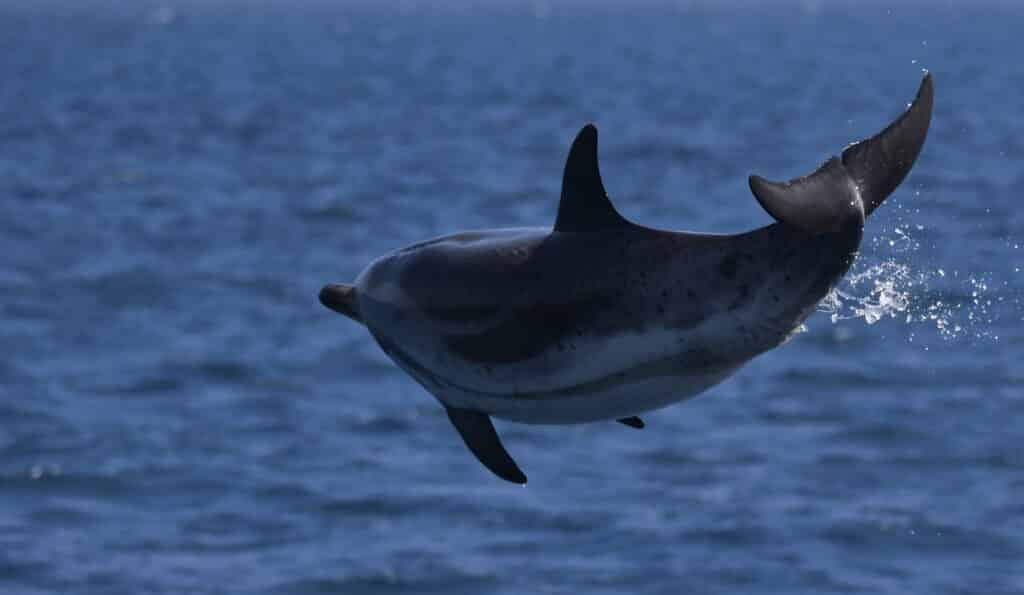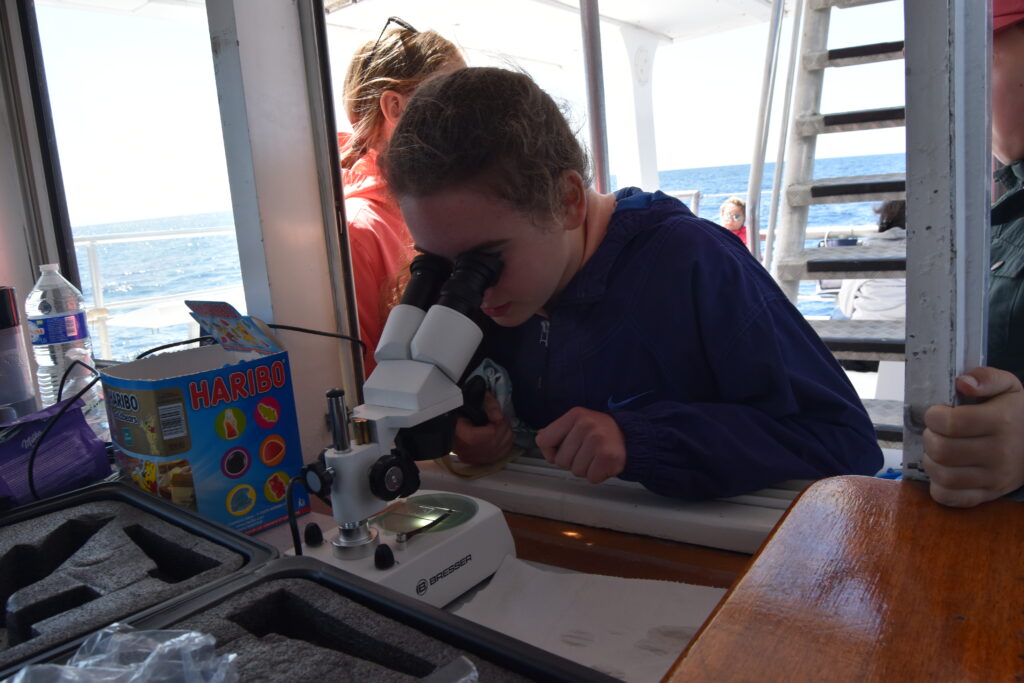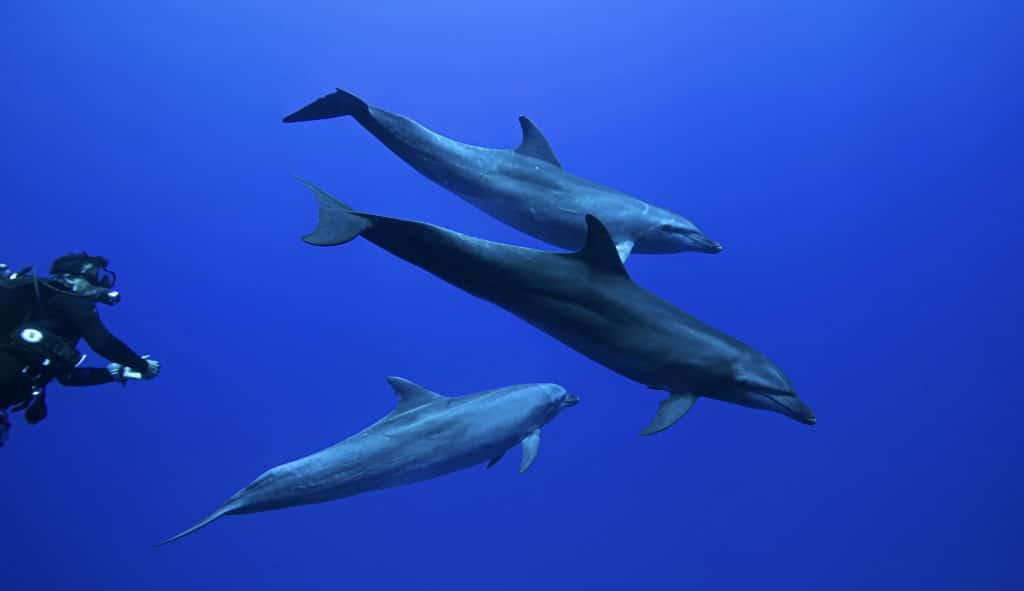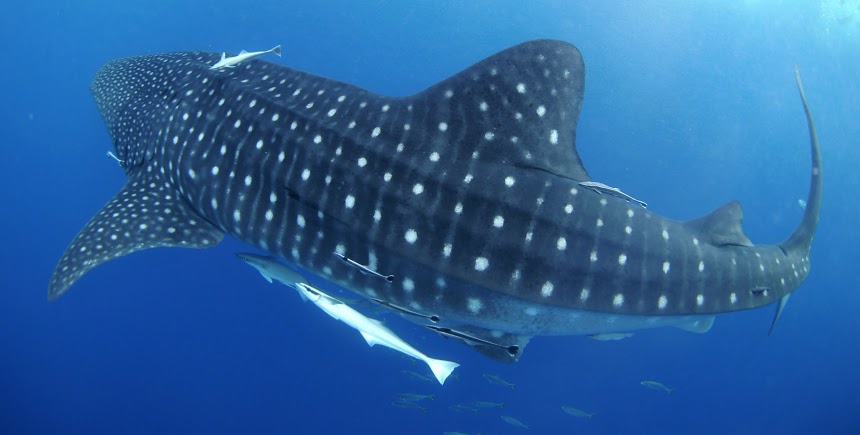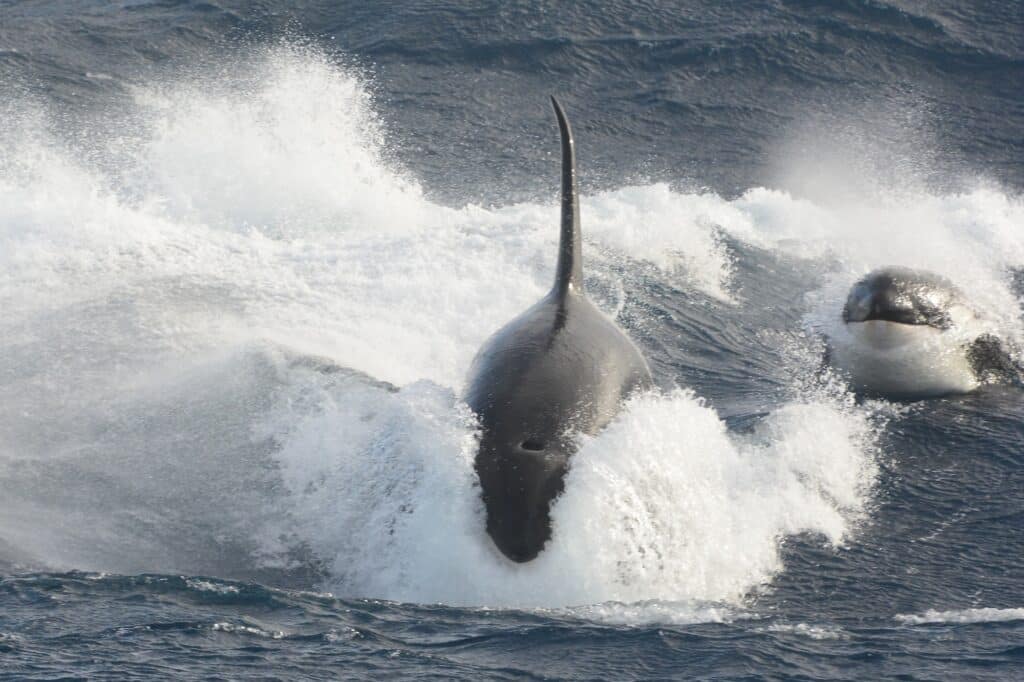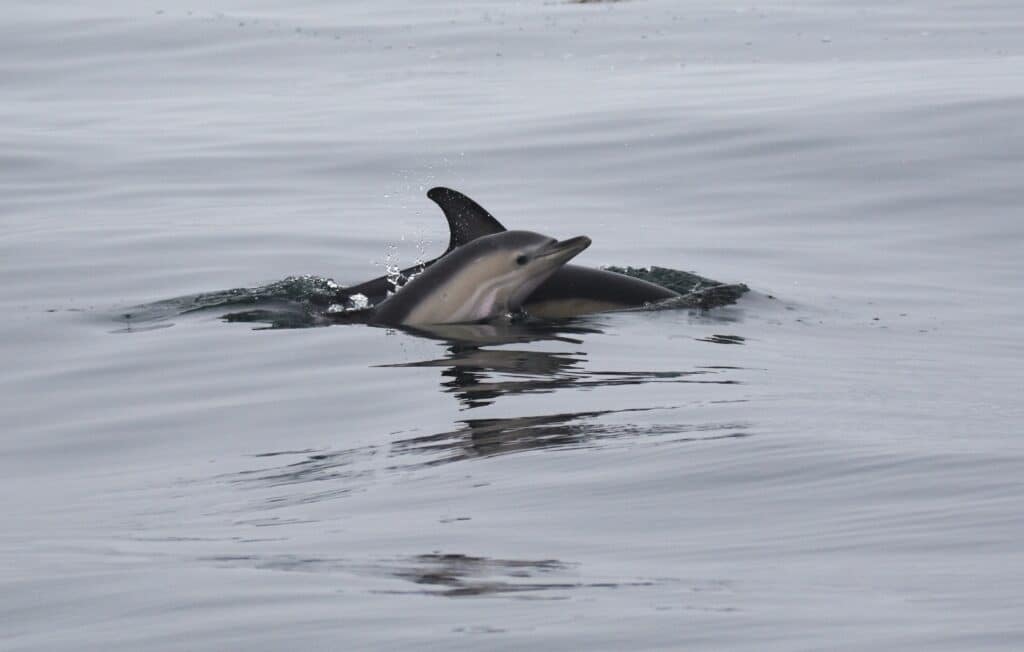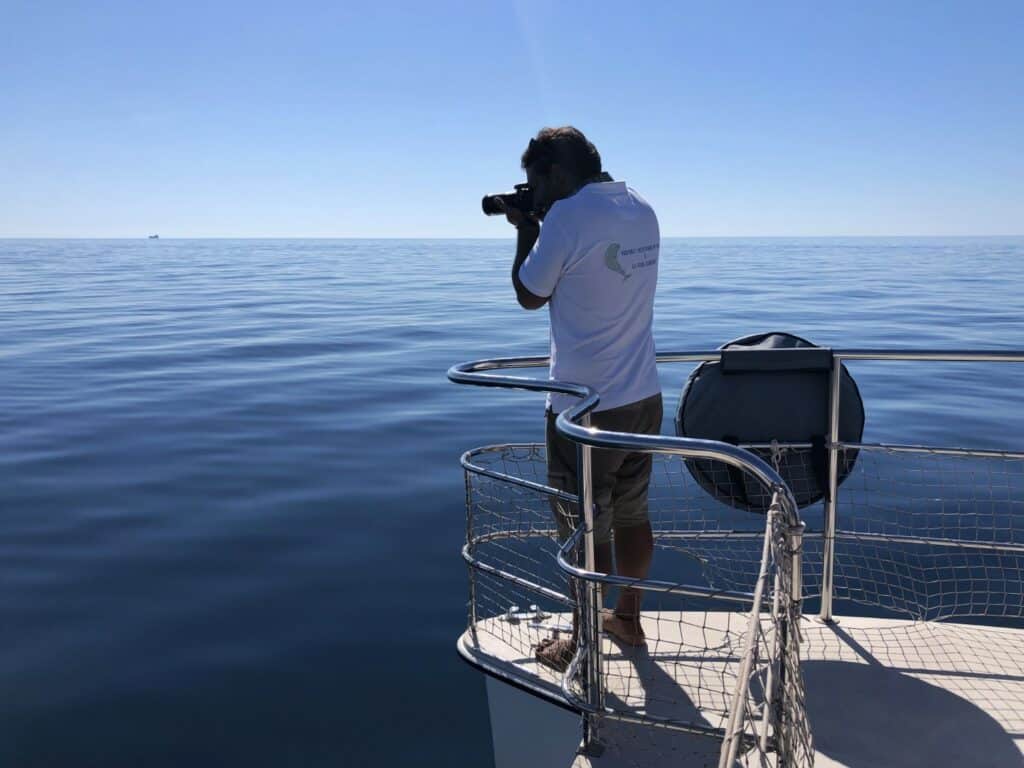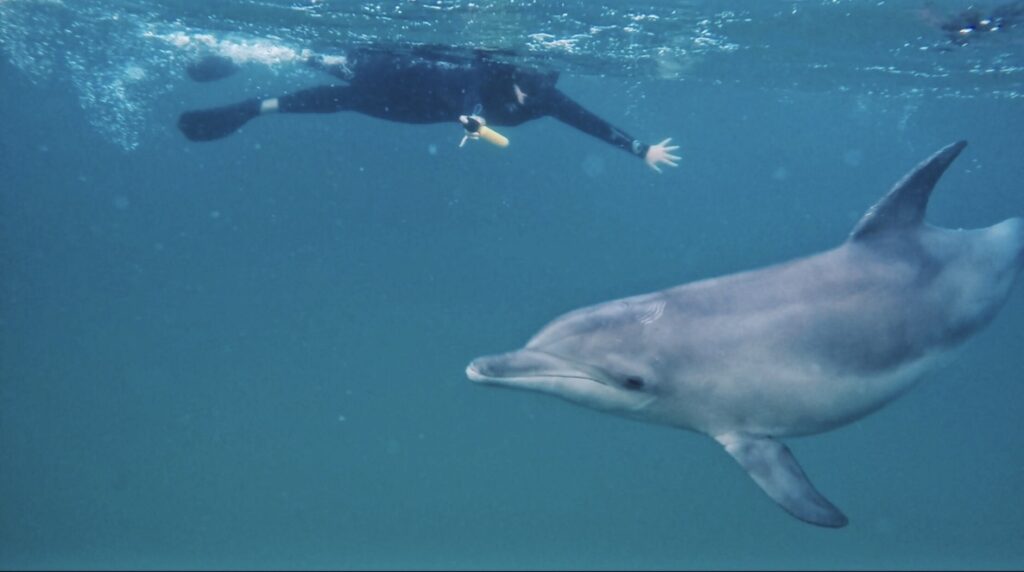Embark on a catamaran to track marine mammals off the coast of the Basque Country, in the southern Bay of Biscay. Study the marine mammals of the Basque coast. Once hunted for their meat and oil, the presence of cetaceans is an indicator of the health of the oceans. Indeed, these marine mammals can only evolve in an environment rich in biodiversity, as they feed on fish or plankton, depending on the species. Studying the population of whales and dolphins provides clues about ocean pollution and climate change. Marine mammals move according to ocean temperature. They prefer areas where they can easily feed. By observing cetaceans and their environment, we can determine whether the southern Bay of Biscay remains attractive to them.
The scientific project to monitor cetaceans in Bizkaia
This scientific visit will enrich the national marine environment monitoring program. The data collected is fed into a national database managed by the Pelagis laboratory at the University of La Rochelle.
The study of marine mammals off the Basque coast is also helping to answer a number of questions:
- Why, 300 years after the end of whaling in the Bay of Biscay, are they no longer visible from the watchtowers on the cliffs?
- Have Basque whales and dolphins become abundant again after the massive whaling of the 17th century?
- What are the causes of fluctuations in the number of individuals in the Bay of Biscay?
- Are population trends identical in Brittany and the Azores?
Your contribution to the study of cetaceans in the southern Bay of Biscay
Four full-day outings are scheduled during the week of your scientific stay. You will board a catamaran over 17 meters long and observe the marine mammals. Observations are visual for all species. You practice photo identification and listen to cetacean sounds using hydrophones, all following a rigorous protocol with precise rules for approaching the animals. The data is then sorted and analyzed. The catamaran has a professional crew. You will not take part in the maneuvers.
You'll be monitoring pilot whales in spring, bottlenose dolphins and beaked whales in summer.
Dates and prices of the scientific stay
- April 7 to April 14, 2024 (teens, families, adults)
- July 14 to July 21, 2024 (teens)
- October 19 to October 26, 2024 (teens, families, adults)
Price : 2035 € - 692 € after tax deduction
Tax deductible *
The NGO partner Objectif Sciences international is recognized for the quality, usefulness, solidarity and educational nature of its stays and training courses dedicated to achieving the goals of sustainable development. The NGO operates on the donation-action principle. A person makes a donation and participates in an NGO action. Note that the person making the donation may be different from the person taking the action. As such, the cost of the training or scientific stay is tax-deductible up to 66% in France.

The NGO partner
Partner NGO Objectif Sciences international has Special Consultative Status with the UN (ECOSOC) and is a member of the AAAS Science and Human Rights Coalition. Specializing in scientific trips, science and participatory research, the NGO believes that education is the driving force behind the Sustainable Development Goals. It offers a range of participatory science trips for adults and minors. All OSI programs here
